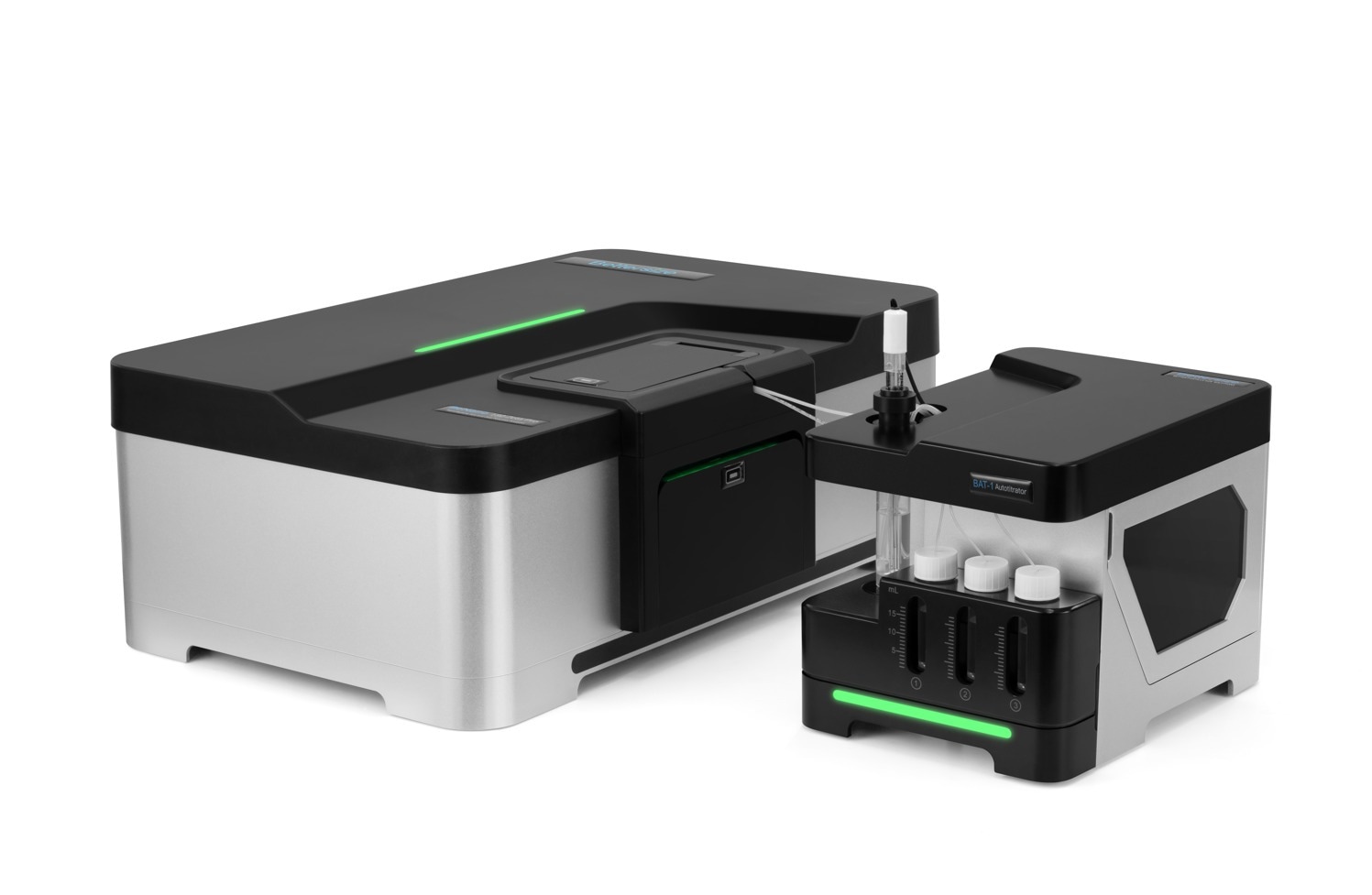The BeNano 180 Zeta Pro is the latest generation of nanoparticle size and zeta potential analyzer designed by Bettersize Instruments. The system is integrated with dynamic light scattering (DLS), electrophoretic light scattering (ELS), and static light scattering (SLS) to deliver accurate measurements of particle size, zeta potential, molecular weight and rheological properties. Now with The BAT-1 Autotitrator, it can be used for analyzing the zeta potential as a function of pH and determining the isoelectric point (IEP) of a colloidal system.
The BeNano 180 Zeta Pro has been extensively employed in academic research, material research, and manufacturing processes of numerous industries including but not limited to pharmaceuticals, chemical engineering, inks and pigments, food and beverage, and life science.
BeNano Series: Unveiling the Secrets of Nanoparticle Analysis
Video Credit: Bettersize Instruments Ltd.
Benefits and Features
- Comes with a solid-state laser
- High-power solid-state laser with exceptional beam quality and long service life
- APD
- Great sensitivity for low concentration or weak scattering samples
- Intelligent intensity adjustment
- Intelligent adjustment of the intensity as per the scattering ability of the sample
- Embedded with a temperature control system
- Extensive temperature range (−15~110 ℃) appropriate for extensive application needs
- Sensitive optical fiber detection systems
- It effectively increases signal-to-noise ratios as a result of the high sensitivity of the optical system
- Backscattering detection optics
- Applicability for concentrated samples and much greater sensitivity
- Phase Analysis Light Scattering (PALS)
- PALS provide higher statistical accuracy results of particles.
- Viscosity measurement
- For the sample of unknown viscosity
BAT-1 Autotitrator
The BAT-1 Autotitrator is equipped with three high-precision titration pumps (with precision of 0.28 μL), and a magnetic stirrer, and is in combination with the BeNano series nanoparticle size and zeta potential analyzer for automatic acid-base titration and determination of isoelectric point (IEP). The pinch valve can close the circuit of the sample during the measurement, leading to high efficiency, accurate titration, good repeatability and the results being independent of operators. The disposable sample container can avoid sample cross-contamination.

Image credit: Bettersize Instruments
Research Level Software
- Standard Operating Procedure (SOP): Guarantees the completeness and precision of parameters
- Intelligent Algorithm of Result Evaluation: Intelligent evaluation and processing of signal quality to remove the effect of random events
- Phase analysis light scattering measurement of low electrophoretic mobility and zeta potential
- Versatile Calculation Modes: Several built-in calculation modes available to cover several scientific research and application fields

Image credit: Bettersize Instruments Ltd.
Versatile Accessories
- Capillary sizing cell - Sample volume down to 3 to 5 μL and greater measurement precision for big particles is available
- Disposable folded capillary cell - Outstanding repeatability of zeta potential measurements and prevents cross-contamination
Applications with DLS Technique
- Research on thermal-sensitive systems, for instance, PNIPAm
- Research on reaction mechanisms and polymerization process
- Research on kinetics of self-assembly and other procedures of polymerization and depolymerization of macromolecules
- Particle size and distribution of colloids, polymers, biomacromolecules, self-assembling system, peptides, proteins, antibodies, antigens and non-metal/nano metal particles
Applications with ELS Technique
- Industries include but are not limited to biology, chemicals, chemical engineering, pharmaceuticals, food and beverage, abrasive and paints, environmental protection, and water treatment
- Zeta potential, electrophoretic mobility and their distributions of suspension systems, like emulsions, colloids, macromolecules, antibodies, antigens, proteins, coal-water slurries and non-metal/nano metal particles
- Research on surface modifications and surface electrical properties
- Controlling and monitoring product stability
- Stability research and control of suspension systems
Applications with SLS Technique
- Petroleum engineering—characterization of oil-displacing surfactants and macromolecule additives
- Chemical engineering—characterization of micelles, polymers and supermolecules
- Pharmaceuticals—research on stability and aggregation of medications
- Life science—characterization of polysaccharides, polypeptides and proteins
- Conformation of supermolecules and studies on self-assembling aggregates
Fundamentals of BeNano 180 Zeta Pro
Video Credit: Bettersize Instruments Ltd.